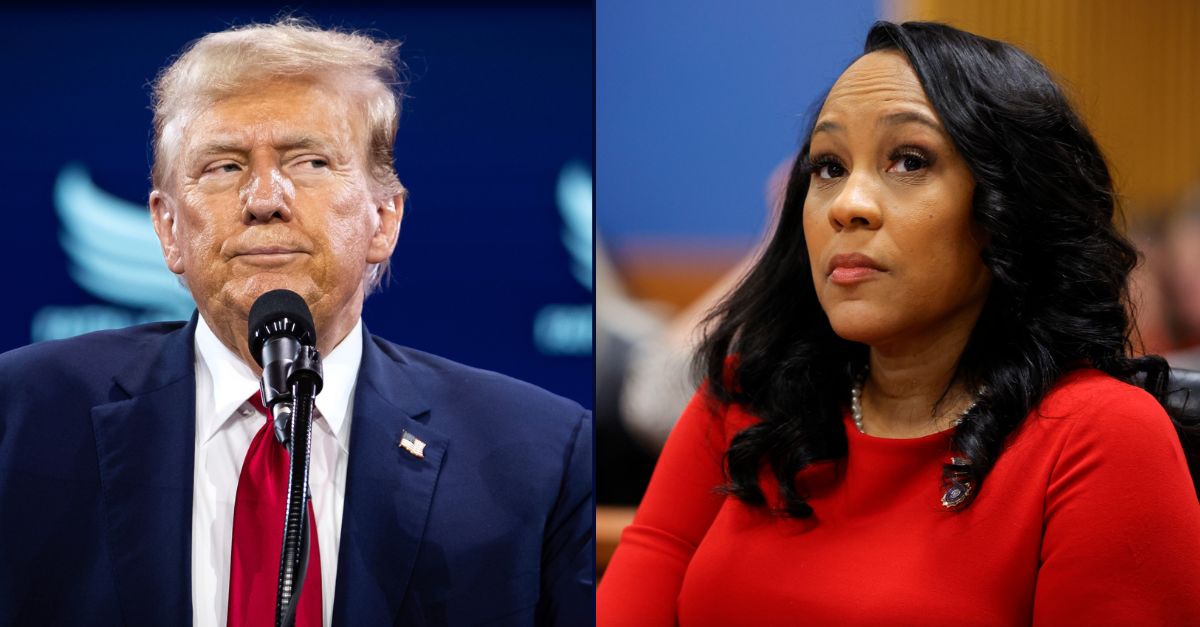
Left: Donald Trump speaks at the annual Road to Majority conference in Washington, DC, June 22, 2024. (Allison Bailey/NurPhoto via AP); Right: Fulton County District Attorney Fani Willis arrives during a hearing on the Georgia election interference case, Friday, March, 1, 2024, in Atlanta (AP Photo/Alex Slitz, Pool).
The Fulton County District Attorney’s Office and DA Fani Willis are imploring the Georgia Supreme Court to reverse an appellate court decision removing the district attorney from the state’s felony prosecution of Donald Trump, arguing that the lower court’s ruling disqualifying her from the case required an “utterly novel” application of the law.
Trump and his 18 co-defendants had been angling to have Willis and her office removed from the election interference case since January 2024, over allegations that her romantic relationship with now-former special prosecutor Nathan Wade created a conflict of interest due to pecuniary motives.
A three-judge panel on the appeals court in December agreed in a 2-1 ruling, holding that the trial court erred in allowing Willis and her office to remain on the case after concluding that her relationship with Wade resulted in the “significant appearance of impropriety.”
“After carefully considering the trial court’s findings in its order, we conclude that it erred by failing to disqualify DA Willis and her office,” Judge Trenton Brown wrote in the majority opinion that was joined by Judge Todd Markle.
But according to Willis, the appeals court’s order was based on a dispute that had no effect on the lawful administration of the case or the constitutional rights of the defendants. In Friday’s filing with the state Supreme Court, the DA asserted that the justices needed to intervene in the case or else risk the laws surrounding prosecutorial disqualification being further muddied.
“[W]ithout identifying a misapplication of settled precedent or any factual error, the majority opinion of the Court of Appeals overturned the trial court, resorting to an utterly novel application of the standards for disqualification generally and appearances of impropriety specifically,” Willis wrote in the 28-page filing. “As the State submitted in its petition, the Court of Appeals managed to exceed its authority both upward and downward, and Respondents’ arguments in support of the majority opinion merely underscore the need for review, clarification, and correction.”
The case out of Fulton County centers on accusations that Trump and 18 others conspired to overturn his 2020 election loss in the Peach State. The indictment alleges actions such as then-President Trump beseeching then-Georgia Secretary of State Brad Raffensperger to “find” enough votes so that Trump would carry the battleground state and also trying to get Republican state lawmakers to appoint a different slate of college electors that would vote in Trump’s favor.








